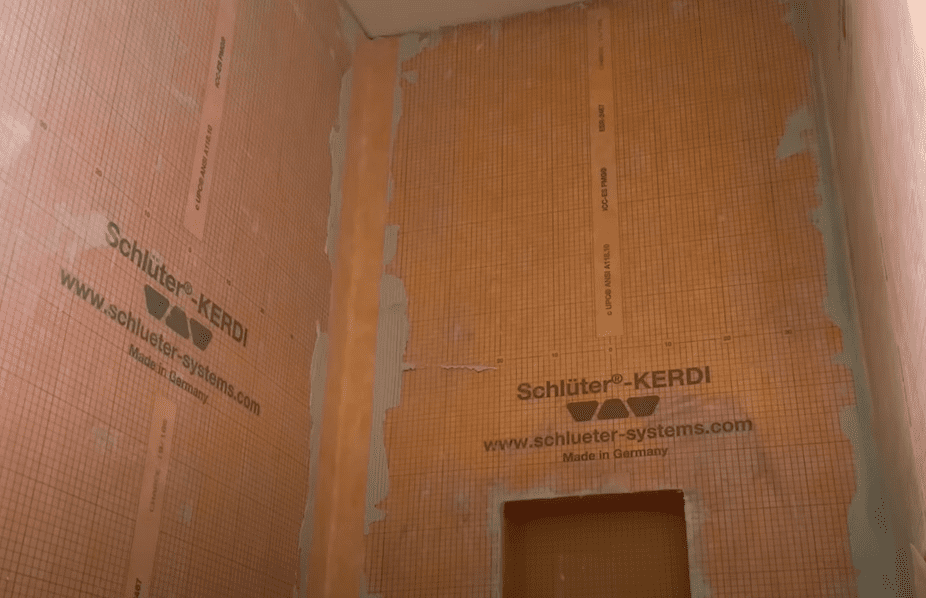
These tips will help you, no matter if you are just starting to hang drywall or you have done it many times before. Using the right materials and techniques will make the job much easier. Your walls will look great and be sturdy. An assistant can be very helpful.
It is important to align all corners when hanging drywall. This will prevent cracks forming around the edges of your sheets. This is done by cutting the sheet so it's a quarter inch shorter that the wall. Then you will score the sheet using your utility knife. Finally, use a square to mark the edges with a dry drywall marker.
It's one of the most challenging tasks you can do, but it's possible. You can hire a professional if you aren't confident in doing the job. But, if you have the skills and knowledge to do it yourself you can save time as well as money.

Drywall is used commonly as the outer layer of a space. It's strong and easy to use. A variety of sizes and thicknesses are available to meet the needs of different applications. For example, a sheet for curved arches may need a thinner thickness that the standard. Ceiling drywall will require a longer sheet than that for walls.
Get a jack to help lift the drywall board before you start any project. You can rent a drywall lift from most department stores. Once you have the lift, it is time to raise the drywall above the ceiling.
You may have to take out drywall boards depending on the shape of your ceiling. In this instance, you'll need re-measure your ceiling joists to mark the new dimensions. After taking the required measurements, it's time to attach the boards. There are three possible ways to secure the boards.
One option is to make a metal stud framework. This will take some effort. Another option is horizontal installation. This will give your walls more surface and give them a solid foundation to stand on. However, if you work in a restricted space, you need to be careful about how much support is provided. Excessive support can lead to a negative pressure point that can cause your drywall's outer edges to crack.

Make sure that the drywall is perpendicular with your joists. A few inches of spacing between the rafters and the joists is a good idea. To ensure drywall integrity, place a screw every 12 inches on each joist.
You can add a furing strip to the edge of your drywall for a professional look. This will stop your fasteners slipping off the board. You can also use a corner beam. You can use either of these methods to ensure your drywall stays level.
Next, hang a row on drywall panels. You should install the top and bottom rows of drywall first. To increase strength, you will need to stagger joints. The rows should be secured with nails or screws.
FAQ
How do I sell my house quickly without paying realtor fees?
If you want to sell your house quickly, then you should start looking for buyers immediately. You should be open to accepting any price offered by the buyer. If you wait too long you might lose out on potential buyers.
What room do I need to remodel first?
The kitchen is the heart of any home. It is where you spend your most time cooking, entertaining, eating, and relaxing. You can make your kitchen more functional and appealing by using these tips!
The bathroom is also an important part of any home. The bathroom provides privacy and comfort while you do everyday chores like brushing your teeth, shaving and bathing. This will make these rooms more functional and beautiful.
What can I do to save money on my home's renovation?
You can save money by doing most of the work yourself. Consider reducing the number or people that you employ during renovations. You could also try to find ways to reduce the cost of materials used in the renovation process.
Do I need an architect/builder?
You may find it easier to hire someone else to complete your renovations if you own the home. But if your goal is to buy a house, hiring an architect/builder will ensure that you get the home you desire.
Can you live in a house during renovation?
Yes, I can live in a house while renovating it
Can you live in a house and have renovations ongoing? The answer depends on how long the construction work takes. If the renovation lasts less then two months, then it is possible to live in your home while it is being constructed. You can't live there if your renovation project takes more than two months.
The reason why you should not live in your home when there is a major construction project going on is because you might get hurt or even killed due to falling objects from the building site. The heavy machinery and noise pollution at the job site can also cause dust and noise pollution.
This is especially true for multi-story houses. This is because the vibrations and sound created by construction workers could cause serious damage to your property.
You will have to live in temporary accommodation while your home renovations are underway. This means that you won't have access to all the amenities that come with your own home.
For example, you will not be able to use your washing machine and dryer while they are undergoing repair. In addition to the unpleasant smells of chemicals and paint fumes, you will have to endure the noises made by workers.
All of these factors can create stress and anxiety for you and your loved ones. To avoid becoming overwhelmed by these situations, it's important to plan ahead.
Do your research before you begin renovating your home. You can avoid costly mistakes later.
It is also advisable to seek professional assistance from a reputable contractor so that you can ensure that everything goes smoothly.
Is it better to remodel an older house than build a brand new one?
There are two options if your goal is to build a new home. Pre-built homes are another option. This type of home can be moved in to immediately after it is built. You can also build your own home. To build your dream home, you will need to hire an architect.
Cost of building a home is determined by how much time you spend planning and designing it. You'll probably need to do the majority of the construction work yourself if you build a custom home. This will require more effort. However, you have more control over what materials you use and where they are placed. It might be easier for you to find a contractor who has experience building custom homes.
A new home is typically more expensive than one that has been renovated. The reason is that you'll need to pay more for the land, as well any improvements. Permits and inspections are also required. On average, the difference in price between a new and remodeled house is $10,000 to $20,000.
Statistics
- A final payment of, say, 5% to 10% will be due when the space is livable and usable (your contract probably will say "substantial completion"). (kiplinger.com)
- ‘The potential added value of a loft conversion, which could create an extra bedroom and ensuite, could be as much as 20 per cent and 15 per cent for a garage conversion.' (realhomes.com)
- It is advisable, however, to have a contingency of 10–20 per cent to allow for the unexpected expenses that can arise when renovating older homes. (realhomes.com)
- Most lenders will lend you up to 75% or 80% of the appraised value of your home, but some will go higher. (kiplinger.com)
- According to the National Association of the Remodeling Industry's 2019 remodeling impact report , realtors estimate that homeowners can recover 59% of the cost of a complete kitchen renovation if they sell their home. (bhg.com)
External Links
How To
5 Things You MUST Know Before Starting Your Home Renovation
-
Do you really want this? If you are planning to do major home improvements like renovating your bathroom or building new houses, you will likely need help. If you aren't confident enough to take on such a daunting task, you may want to reconsider. You could lose a lot of time and money and not reap any real benefits. Instead, you can hire someone who knows their stuff to help. They will help you save time and stress and still give you a beautiful home to live in.
-
How much should I spend? - This one might seem obvious, but spending too much on a renovation project could actually make matters worse. The reason is because you'll probably find yourself having to pay back most of the costs at the end of the day. You should stick to your budget, even if it's a tight one. A lack of a budget could mean that you end up spending a fortune and getting nothing in return.
-
Do I hire professionals or do I need to DIY? - There's no right or wrong answer here, but we'd recommend hiring professional tradespeople if you can afford them. After all, they'll be able to give you advice on how best to proceed with your project. For example, they'll be able install the plumbing correctly, ensure that everything is done safely, and provide you with a warranty when they finish their work. DIY projects are often a trial-and-error process, so you'll need to learn a lot from your mistakes. Plus, you'll have to deal with all sorts of problems that arise during the process.
-
How much can I afford it? - Don't underestimate what a renovation will cost. You might need to borrow money from family and friends to pay the bills. When you want to sell your existing property quickly after the renovations are complete, you will need to account for the price of selling it.
-
What is the best place to start? There is no right or wrong place to begin when it comes to starting. We recommend that you pick something that you are passionate about. That way, you'll be motivated to keep going, and you'll be less likely to procrastinate. Avoid areas that require constant maintenance. You shouldn't redecorate your living space if you are constantly cleaning up dirt and dust.